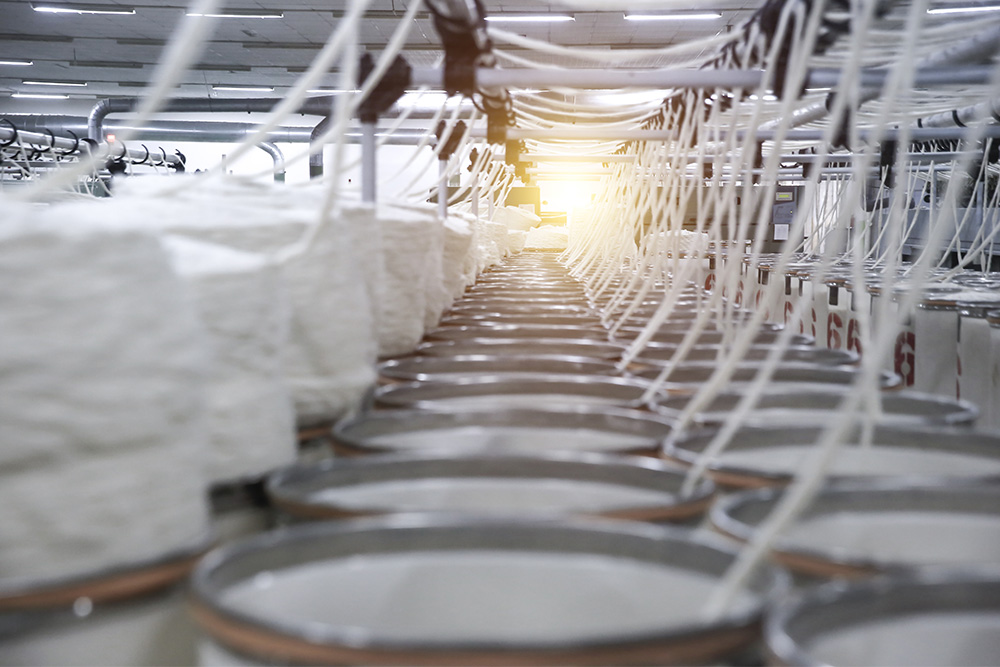Cash starved textile industry has been hit with a low cotton output of 4.8 million bales this year; it lacks the resources to import over 7 million bales that it needs to operate next year. Domestic cotton prices remain stable for lower-quality cotton.
The textile industry is in a fix as the future of textile trade in the global market is murky and uncertain. They are sitting on unsold stock of cotton yarn that has blocked their finances. Most mills have been operating at 50 percent capacity for a long time. Logically this should have created a demand for yarn which is not there. Cotton, their basic raw material, is currently available at low rates both in the domestic and international markets. They need to dispose of yarn to generate resources for fresh purchases.
Their cause has been further weakened by the regular and substantial decline in textile exports. The decline of 18.5 percent in textile exports in the month of November is giving them nightmares. Ginners, the weakest link in the cotton trade, are sitting on unsold stocks. The shortage of dollars is impacting both the cotton import and inputs needed by the value-added sector.
The uncertainty about foreign orders and the economic turmoil in the country has panicked the entire textile value chain. There have been reports of layoffs in all sub-sectors of textiles. This is further aggravating the unemployment situation in the country. Global inflation is impacting the purchasing power of consumers relegating clothing to the lowest priority in their budget.
In the local cotton market, the rate of cotton in Sindh and Punjab as per quality is between Rs 14,000 to Rs 17,000 per maund. The rate of Phutti is between Rs 4,500 to Rs 8,500 per 40 kg. The Rate of Future Trading of New York Cotton is between 79 American cents per pound to 82 American cents per pound. Global cotton trade remained lopsided according to USDA. South Korea procured 17,900 bales. China arranged 10,900 bales, including 6,600 bales transferred from Vietnam. Mexic with 4,600 bales, including 400 bales from Thailand was the third largest buyer. Pakistan with a deficit of 7900 bales contracted agreements for 3000 bales and Turkey 28200 bales for the year 203-24.
The spinners are in more trouble than the value-added sector. But this sector demanded a premium of 5 percent on the dollar on its export proceeds. The value-added sector also asked for accelerating sales tax refunds. Gas unavailability and its tariff is other issues disturbing the entire textile value chain.
![]() The 310th meeting of the Central Executive Committee of the Pakistan Cotton Ginners Association discussed assurances given by the Federal Minister regarding the fixed charges applicable to the ginning industry. The issue of a 17 percent sales tax imposed on Banola and oil was also discussed and a plan of action was decided to resolve it at the regional board level.
The 310th meeting of the Central Executive Committee of the Pakistan Cotton Ginners Association discussed assurances given by the Federal Minister regarding the fixed charges applicable to the ginning industry. The issue of a 17 percent sales tax imposed on Banola and oil was also discussed and a plan of action was decided to resolve it at the regional board level.




